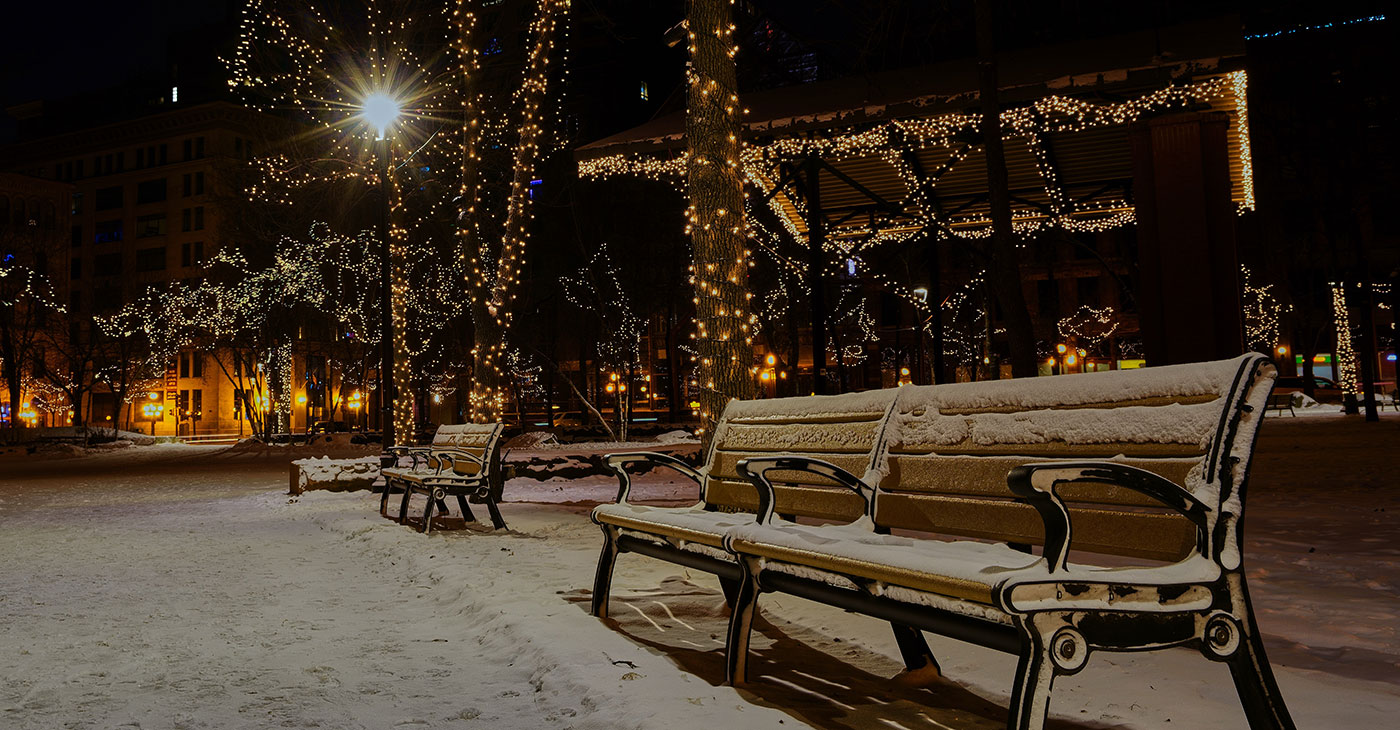By Chris Saxton M.Div.
The idea of a celebration at this time of year is pre-Christian in its origins. It is a natural time for a feast. In an agricultural society, the harvest work is completed, and there’s nothing left to be done in the fields – even the grapes for ice wine in Niagara have been harvested by now.
For both our ancestors and ourselves, the dark days that culminate with the shortest day of the year — the winter solstice — are lightened with feasts and decorations. If you happen to live in a region in which midwinter brings striking darkness and cold and hunger, then the urge to have a celebration at the very heart of it to avoid going mad or falling into deep depression is very, very strong. So here in Canada we celebrate with lights and with family and with feasts and with merriment.
This is not only a Christian concept. Our Jewish brothers and sisters are celebrating Hanukkah the festival of lights running over eight days. For Hindus, Diwali the “festival of lights” that signifies the victory of light over darkness, knowledge over ignorance, good over evil, and hope over despair was earlier this month. For almost all religions light is a metaphor for truth and goodness, and love. It is all about love. And love is the greatest survival mechanism we humans have. A loving connection to ourselves and to others is vital, it is what makes us human.
This week marks the beginning of the church year for Western Christianity, the first Sunday of Advent. And if that is your faith tradition, let me be the first to wish you a Happy New Year. Advent (in Latin advenio – meaning “to come to”) is the coming of Jesus Christ into the world. That is what Christians celebrate these next four weeks, Jesus Christ coming into the world in a stable 2000 or so years ago.
“Arise, Shine. For your light has come…” This is a text we hear at this time of year from Handel’s Messiah quoting the prophet Isaiah. The darkness is around us but the promise of light is given. The Epistle to the Romans says, “The night is far gone, the day is near. Let us then lay aside the works of darkness and put on the amour of light; let us live honourably as in the day.”
How do we live honourably as in the day? Rabbi Harold Kushner says that patience with people is love and that is honourable, and patience with God is faith and that is honorable as well. So perhaps to live honourably is to live with love. Is Christmas not about love?
“The people that walked in darkness have seen a great light they that dwell in the land of the shadow of death, upon them hath the light shined.” What is the light that is shining on, and in us? Here in the bleak midwinter of our lives, when the ground is hard as iron, comes a great light. A light to guide us. A light to warm and thaw our souls. A light that allows us to see others and to see ourselves. A light that once shone in a humble manger…
The Quakers, the Society of Friends have an expression: “Mind the Light.” For them this means look for the light of God, which shines in each of us. We are so rushed in our modern world, we have little enough time for ourselves, for others, and for the baby in a manger. And this is perhaps where we go wrong in a consumer secular Christmas, we miss the message of the light.
Elisabeth Kubler-Ross said “People are like stained – glass windows. They sparkle and shine when the sun is out, but when the darkness sets in, their true beauty is revealed only if there is a light from within.” The message of Christmas is one of empathy and love, The Divine comes in through our brokenness, and changes our lives. That is how God’s love works. It is our brokenness that makes it possible for God to find ways into our lives, through the gaps, the breaches, the insecurities, the failures and the wrongs.
The experience and message of Christmas is love. The love that came blazing out of the darkness of a humble stable in a desert land so many years ago is also the same love that shines in and through each of us today.
“Mind the Light” means, mind the Light in ourselves. We stop, pause, pray, and recognize the face of the Divine within. This is the true gift of the season.
I pray we all rejoice with exceeding great joy this season where the coming of light into darkness is celebrated, and offer the gift of ourselves and of our love. Let us see the Divine’s light in the eyes of all around us, today and everyday.











